Harnessing Artificial Intelligence for Smarter Agriculture
Empowering farmers with Artificial Intelligence -driven insights to protect crops and ensure sustainable yields

Project Overview
Smart Detection, Healthier Crops: The Role of Artificial Intelligence in Early Disease Intervention
In response to the Federal Ministry of Communications, Innovation, and Digital Economy’s call to advance the application of Artificial Intelligence (AI) for economic growth, our consortium proudly secured one of the 45 national AI research grants awarded in October 2023. Our diverse team consists of two New Zealand-based researchers, a Nigerian academic, and BRALN LTD, a Nigerian technology company. Together, we are tackling the critical challenge of food security by harnessing AI to empower farmers in developing countries to detect crop diseases early, protect their yields, and enhance resilience.
Our project focuses on developing a cost-effective AI-based system to detect Tuta absoluta, a devastating tomato crop disease. This effort aligns with the growing need to address the agricultural impacts of climate change, which exacerbates pest movements, promotes favorable conditions for their proliferation, and threatens crop sustainability worldwide.
Awarded Five Million Naira as part of Nigeria’s First National AI Research Grant, our initiative aims to integrate advanced AI models into user-friendly software and mobile applications, providing farmers with practical tools for early disease detection. This solution will be coupled with comprehensive training to ensure farmers can effectively use these technologies. Our long-term vision is to stabilize food prices, prevent crop losses, safeguard livelihoods, and contribute directly to food security and economic development.
Beyond addressing immediate agricultural challenges, this research promotes the integration of AI with traditional farming practices, driving digital transformation in agriculture. It represents a pioneering approach with global relevance, positioning AI as a key tool for sustainable agricultural development.
As a team of early career researchers, we bring national and international expertise, with a proven track record in both research and entrepreneurship. Our consortium is deeply connected with the AI industry, facilitating collaborative efforts that foster innovation. Our work has been published in top-tier academic journals, and we continue to engage with global experts through conferences and research networks. Check out our latest publications in the ‘Research Section’ to explore our cutting-edge work on this critical topic.
AI‑Powered Disease Detection
Farmers can capture and upload leaf images, and our AI model analyzes them to identify early signs of Tuta absoluta, enabling timely action to protect crops.

AI-Guided Recommendations
Our system uses a language model to generate practical guidance, offering farmers clear next steps for managing and mitigating the disease.

Data‑Driven Insights
Export analysis results as downloadable reports, giving farmers easy access to clear, actionable insights they can reference anytime in the field or share with advisors.
Transforming agriculture with Artificial Intelligence: Detect, protect, and thrive
Our project focuses on developing a cost-effective AI-based system to detect Tuta absoluta, a devastating tomato crop disease. This effort aligns with the growing need to address the agricultural impacts of climate change, which exacerbates pest movements, promotes favorable conditions for their proliferation, and threatens crop sustainability worldwide.

Our Dataset
The TomatoEbola dataset consists of images of tomato leaf diseases (both infected and healthy) collected from three farms in Yobe State, Nigeria: Dikumari, Kasaisa, and Kukareta wards. The dataset includes a total of 326 images, with 152 healthy and 174 infected. Specifically, Kasaisa contributes 122 images (52 healthy and 70 infected), Dikumari contributes 101 images (50 healthy and 51 infected), and Kukareta contributes 103 images (50 healthy and 53 infected).
Each farm's images are available in two formats: raw images and YOLOv8-labeled images. Some images contain multiple leaves, so bounding boxes are provided to accurately label each leaf. For detailed information on the number of images, total annotations, average annotations per image, image size, median image ratio, and the distribution of healthy and infected annotations, refer to this
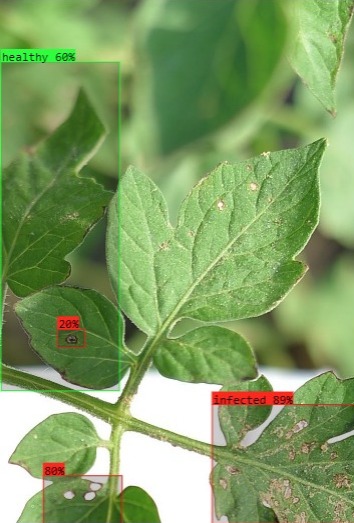
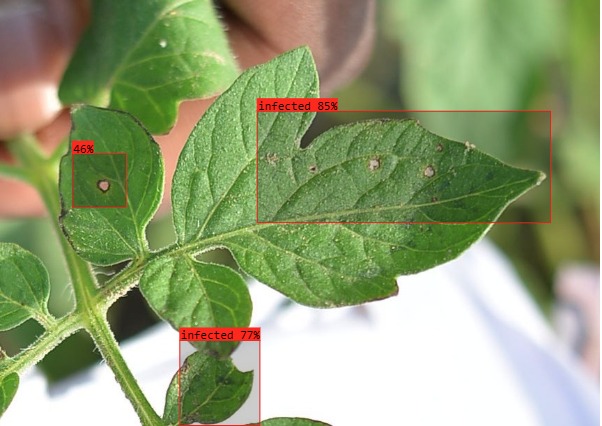
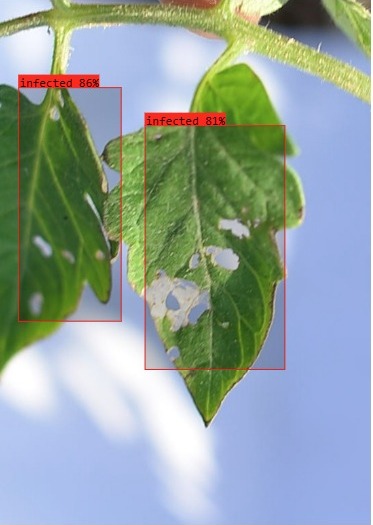
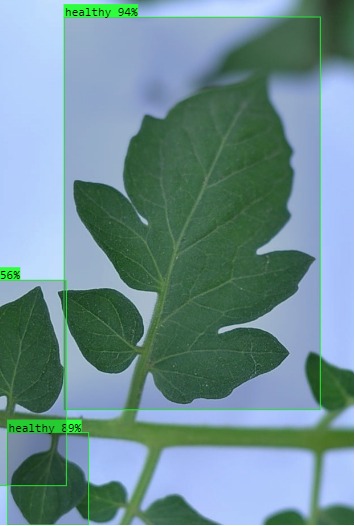
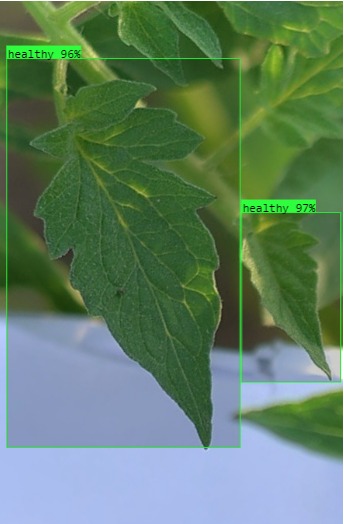
Research Papers
Artificial Intelligence (AI) in Early Detection and Management of Tuta absoluta Tomato Disease: A Systematic Literature Review
Food security is increasingly threatened by climate change, which accelerates the spread of pests like Tuta absoluta, a major threat to global tomato crops. This study explored the potential of artificial intelligence (AI) for the early detection and management of Tuta absoluta infestations.
Early detection of tomato leaf diseases using transformers and transfer learning
This study addressed the early detection of tomato leaf diseases using a transformer-based transfer learning approach. Tomatoes, a globally essential crop, are prone to diseases that can significantly reduce yields if not identified early.
YOLO for Early Detection and Management of Tuta absoluta Tomato Leaf Diseases
To assess the generalisability of our previously proposed early detection method for Tuta absoluta tomato leaf disease, this study compiled the new TomatoEbola dataset from three Nigerian farms, each with distinct environmental conditions.
Acknowledgement
Advancing AI Research in Nigeria: A New Era of Innovation
The Nigeria Artificial Intelligence Research Scheme, funded by the Federal Ministry of Communications Innovation and Digital Economy through the National Information Technology Development Agency (NITDA), is dedicated to building a thriving AI ecosystem. By offering strategic grants to foster collaboration among researchers, innovators, and organizations, the scheme aims to drive groundbreaking developments in AI. In 2023, after a meticulous evaluation process involving 26 global experts, 45 innovative projects were selected for funding. Among the grantees, our consortium's AI-driven agricultural research is set to address critical challenges and contribute significantly to the progress of Nigeria and Africa.




























































